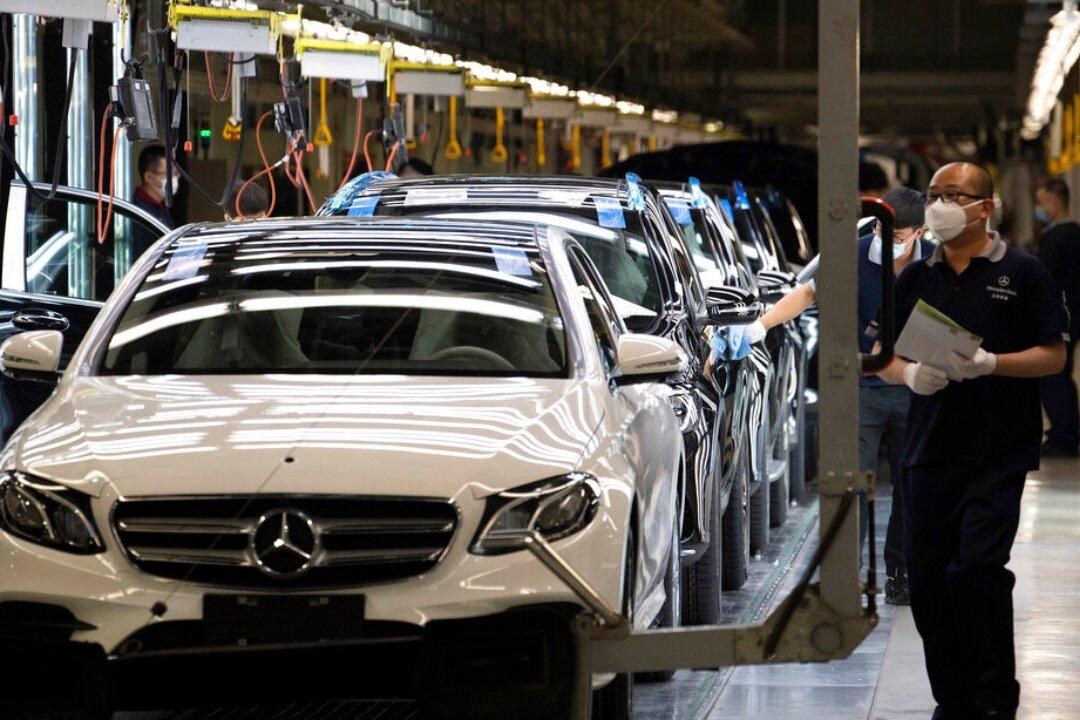Germany’s new factory orders fell in February 2022 on a monthly basis for the first time in four months, according to provisional results from the country’s federal statistical office.
New orders decreased by 2.2 percent in February compared to January on a seasonally- and calendar-adjusted basis, the office said in an April 6 press release. Excluding major orders, new orders fell by 1.6 percent for the month. The decline in new orders was attributed largely to the 3.3 percent fall in foreign orders.





